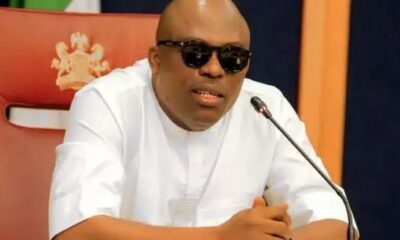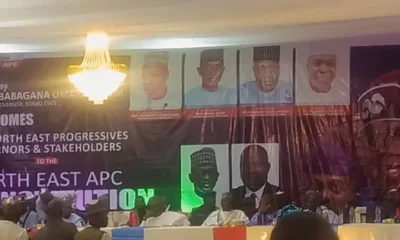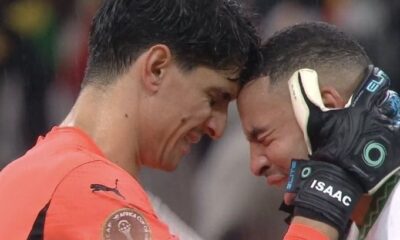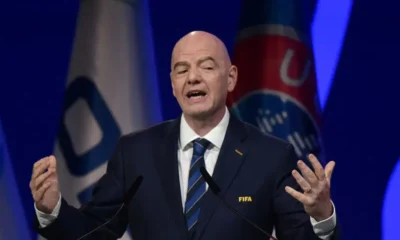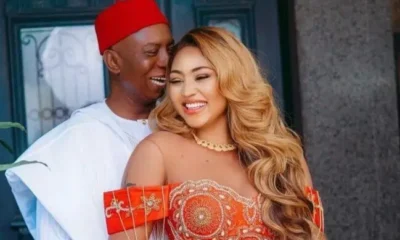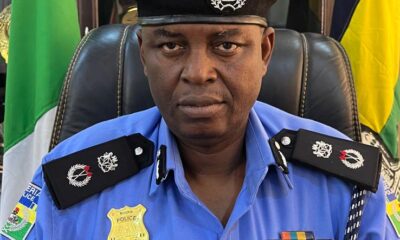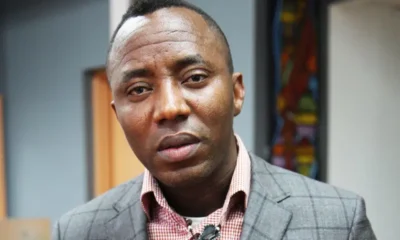Politics
2027: Is Goodluck Jonathan a threat to Tinubu?
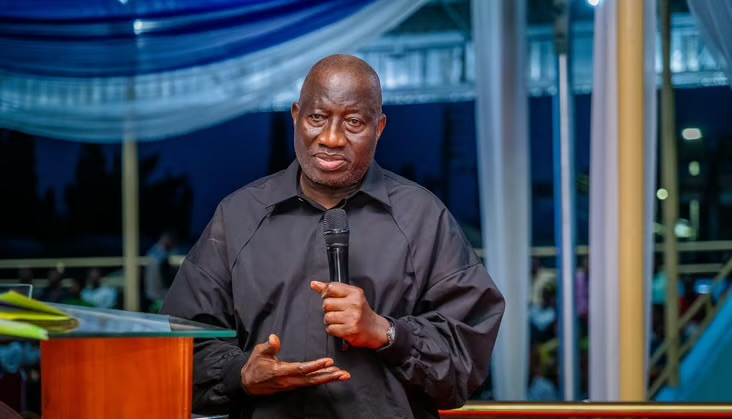
Since his ousting in 2015, ex-president Goodluck Jonathan has become the ghost that stalks every election cycle in Nigeria. His face reappears on billboards, his name is floated on campaign buses, even as he publicly cultivates a life beyond partisan politics.
Ahead of the 2023 vote, rumours spread that the then-outgoing president, Muhammadu Buhari, quietly preferred Jonathan as his successor over Bola Tinubu.
Tensions escalated when a northern coalition dramatically bought the N100m ($240,000 at the time) presidential nomination forms of the ruling All Progressives Congress (APC) on Jonathan’s behalf, calling him ‘the most qualified candidate’ to lead.
Jonathan never showed up to contest, leaving Tinubu to secure the ticket and the presidency. Yet the former leader, now largely occupied with international mediation work, has neither declared an ambition to return nor firmly shut the door on those campaigning in his name.
That silence has been enough to feed speculation and to sow unease in Tinubu’s camp.
Why Jonathan?
For Nigeria’s battered opposition, Jonathan’s name is less about nostalgia than convenience. Tinubu has tightened his grip on the political landscape, leaving the Peoples Democratic Party (PDP) desperate for a figure who can rally fractured ranks and give them a fighting chance in 2027.
The party’s decision to zone its presidential ticket to the south has only heightened the intrigue. By Nigeria’s unwritten rotation pact, Tinubu has so far served four of the south’s ‘allotted’ eight years, meaning any challenger must also emerge from the region.
That calculation narrows the field. Peter Obi, the Labour Party’s 2023 candidate, electrified younger voters but fell to third place and is viewed with deep suspicion by many in the north.
Buhari once promised to serve only one term. Did it happen? No. Such pledges are moral, not legal, and morality in politics is a slippery slope
Jonathan, by contrast, offers a more familiar and – to some northern elites – reassuring option. He’s a former president with name recognition, legal ambiguity over his eligibility and the allure of serving just one more term before returning power northwards.
Whoever emerges as the southern challenger will be under pressure to promise just one term in office, handing power back to the north by 2031. Obi has made that pledge. But northern political elites don’t believe him.
Isah Abubakar, president of the Northern Youth Council of Nigeria, says Jonathan offers a safer bet precisely because his return would be constitutionally limited.
“Any southerner replacing Tinubu in 2027 will definitely want to spend eight years, leaving the north out of power for 12 years. This will not be acceptable to us,” he says. “Except if the opposition presents Jonathan to complete Tinubu’s four years, or power should return to the north now to cover the deficit of Yar’Adua’s two years.”
That scepticism is echoed by the Arewa Consultative Forum. Its national publicity secretary, Tukur Muhammad-Baba, dismisses Obi’s one-term promise as “naïve and defeatist”.
“We’ve heard this before,” he says. “Buhari once promised to serve only one term. Did it happen? No. Such pledges are moral, not legal, and morality in politics is a slippery slope.”
Is Jonathan eligible to run?
The biggest question hanging over Jonathan’s possible comeback is whether he is even allowed to stand. The 1999 constitution states that no one can be elected president more than twice.
Jonathan, then vice-president, first took the oath of office in 2010 after the death of Umaru Musa Yar’Adua. He went on to contest and win the 2011 election outright, marking his second swearing-in. Ahead of the 2015 poll, his opponents tried to block him, arguing he had already reached the constitutional limit.
But the courts disagreed. Both the Federal Capital Territory High Court and the Court of Appeal ruled that Jonathan’s initial oath in 2010 did not count as an ‘election’ under the law, clearing him to run again.
The legal waters were muddied further in 2017, when the National Assembly amended the constitution to make clear that anyone who stepped in to complete another president’s term could only seek one further mandate.
For Festus Keyamo, a senior lawyer and minister in Tinubu’s cabinet, that change closes the door on Jonathan. In a lengthy post on X, he warned that any attempt by the PDP to field him in 2027 could collapse in court and leave the party stranded without a candidate.
But others disagree. Itse Sagay, another prominent constitutional lawyer, insists the amendment cannot be applied retroactively. “Since it’s not retroactive, it doesn’t catch him,” he says. “It means he’s still entitled to contest again.”
Will Jonathan run?
Those urging the former president’s return often point to rosier economic memories. Under his government, petrol sold for N87 a litre; now it is closer to N800. The naira traded at N167 to the dollar; today it hovers around N1,500. A bag of rice that once cost N10,000 is now edging towards N100,000.
But while supporters trade on nostalgia, Jonathan himself has stayed silent. His outspoken wife has been less ambiguous. At an Abuja event in May, Patience Jonathan reminded the audience that the Tinubus had “supported us during our trying times”.
“I cannot abandon my friend,” she said of Oluremi Tinubu, the first lady. “I told her I would campaign with her.”
Yet Jonathan’s name still spooks the ruling party. His mention by frontline allies such as Nyesom Wike, and Keyamo’s long warnings about his ineligibility, suggest unease within Tinubu’s camp.
Among his own people, however, the message is caution. The Ijaw Youth Council recognises the ex-president’s enduring appeal but fears a comeback would tarnish the international reputation he has built since leaving office.
“We are more concerned about his reputation and global profile than the opportunity to serve,” says Jonathan Lokpobiri, the council’s president. “His wife has already spoken against his return. And with the biased politics of the north – who swept the carpet from under him even when he was president – why risk it again?”
In Benin City last week, Jonathan hinted at the wounds of 2015, blaming his downfall on betrayal within his own camp. For allies back home, that is all the more reason to stay out of the fray.
“With another southern presidency, if he delves into running, I would rather feel they would have deceived him into this thing,” says Lokpobiri.
(The Africa)
-

 Opinion22 hours ago
Opinion22 hours agoPolitics behind failed impeachment attempt of Gov. Fubara
-

 Politics19 hours ago
Politics19 hours agoBorno Speaker Protests Omission Of Shettima’s Pictures At APC Event
-

 Sports18 hours ago
Sports18 hours agoWipe your tears with my towels – Nwabali taunts Moroccan players
-

 News18 hours ago
News18 hours agoTroops clear terrorists’ camps in Timbuktu Triangle, thwarts Boko Haram attacks
-

 Sports22 hours ago
Sports22 hours agoFIFA president slams Senegal for ‘unacceptable scenes’ in AFCON final
-

 Metro18 hours ago
Metro18 hours agoWhy Regina Daniels’ friend was arrested – Ned Nwoko
-

 News3 hours ago
News3 hours agoKaduna, police dismiss church attack, 100 worshippers’ kidnap
-

 News18 hours ago
News18 hours agoAnti-Tinubu Post: FG amends charge against Sowore, delists Facebook, X



